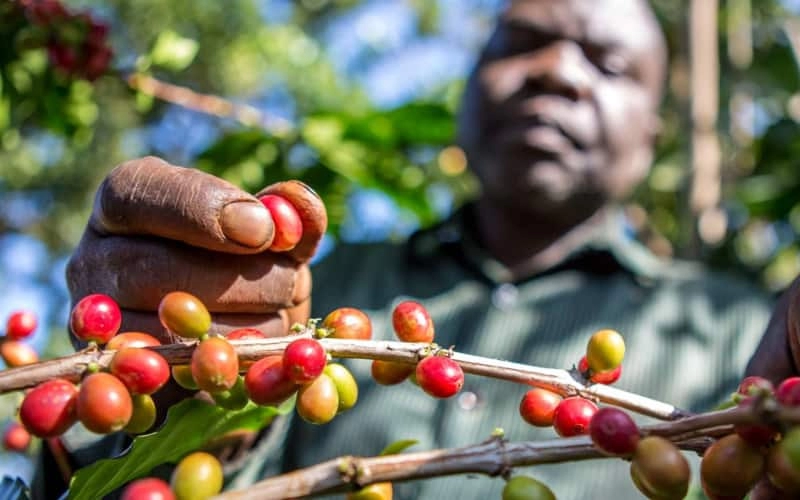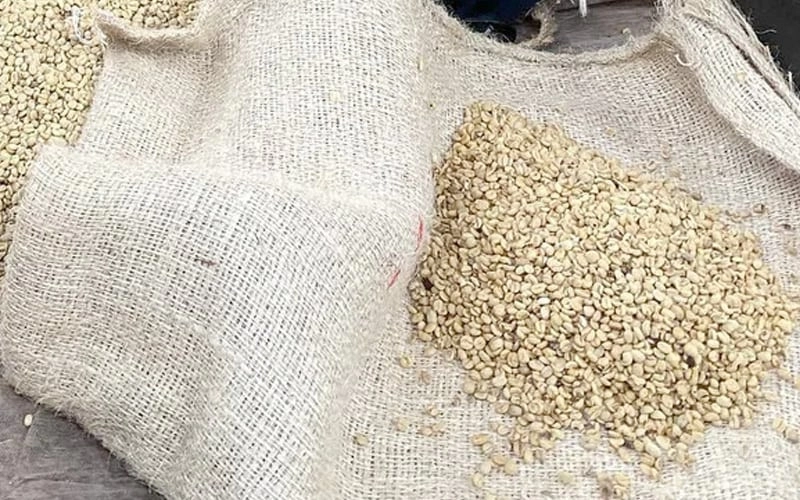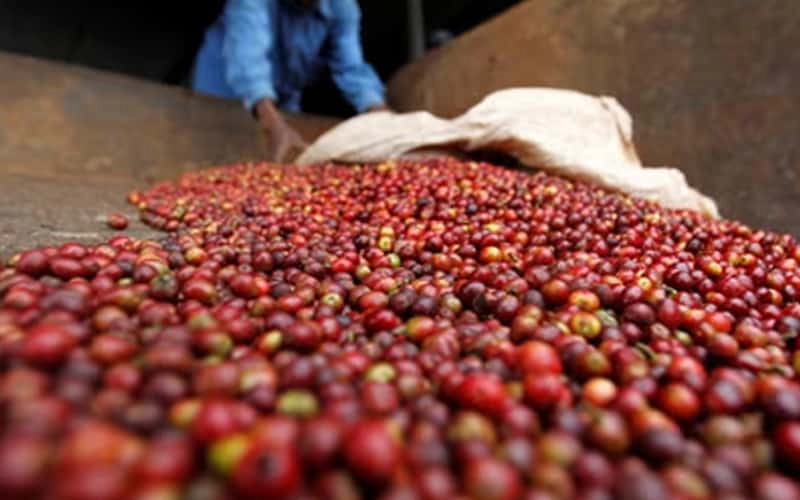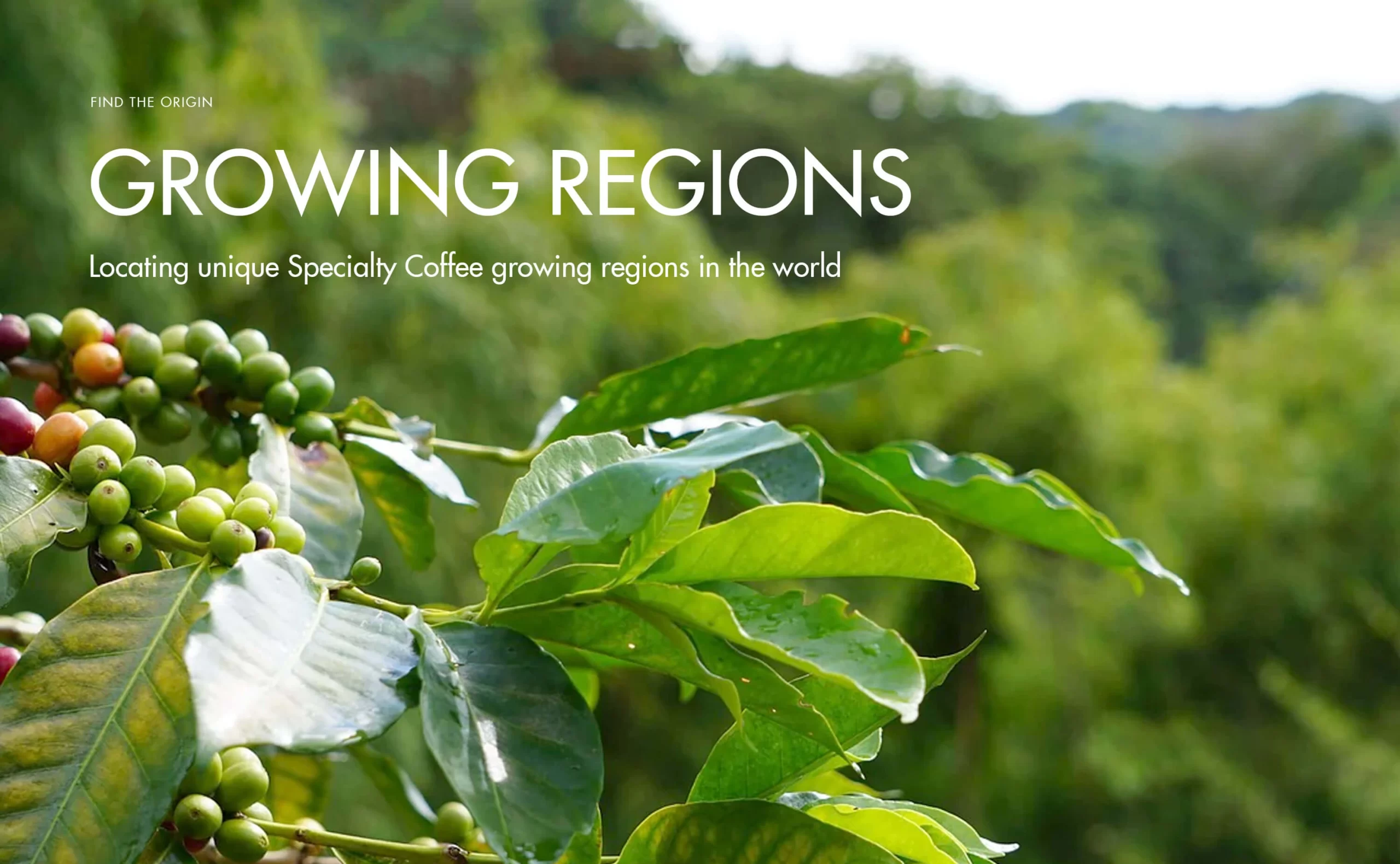Kenya coffee industry crisis is growing! What is the reason?
Some coffee farmers in Kenya said that the Kenyan coffee industry had a golden age with the strong development of the Farmers Cooperative Association. At that time, 42 coffee factories and thousands of farmers produced thousands of kilograms of coffee each year. However, according to reports, the crisis in the Kenyan coffee industry is becoming increasingly serious. What is the reason? Let’s find out with XLIII Coffee!
Poor cooperative management causes crisis in Kenya's coffee industry
According to the survey, the Kenya coffee industry is becoming extremely gloomy. Rich coffee farms in central Kenya have been covered with Napier grass. Many farmers in this area said that farmers are no longer interested in coffee production, possibly due to poor management mechanisms and embezzlement by cooperatives. They constantly lose money, are exploited, and are not paid properly. This causes farmers to lose income and lose confidence in cooperatives. Many farmers decided to leave the cooperative, produce and sell their own coffee to brokers. With no sustaining producers, the cooperative model in the Kiambu region and central Kenya counties collapsed. Some producers had to abandon farms and coffee growing areas were abandoned, leading to a serious decline in Kenya coffee output. Since 1987, coffee production in Kenya has decreased by about 70% to 40,000 tons in 2021.

The Kenyan government's reform policies and their impact
Recently, Vice President Rigathi Gachagua of Kenya is trying to promote the latest coffee reform. But the decisions taken are causing more serious losses to the Kenya coffee industry.
The reform campaign began with the Reform Conference in Meru with a call for entities he called cartels to leave the coffee sector. We want many values to be returned to farmers (avoiding the situation of stealing farmers' efforts, ensuring coffee growers receive 95% of green coffee sales), but how are these policies implemented? This practice causes a lot of confusion for coffee makers in Kenya.

Marketing agents, roasters and coffee exporters are constantly having their operating licenses revoked, and the re-licensing mechanism is unclear, leading to supply chain disruptions, causing losses while the industry has just begun to operate. just recovering. Many manufacturers and roasters said the recall has affected the entire coffee import and export business. In addition, companies that own factories and marketing agencies must be established according to government regulations. It requires that companies can only engage in marketing, milling or exporting if they have a company that specializes in providing that particular service. With current reforms, these companies have lost their licenses and only have to apply for a license for a single service.

As of August, the license revocation issue had affected trading volumes. Coffee factories that have lost their licenses cannot sell the more than 100,000 bags of coffee they have in their stores. In early October, some coffee factories announced they would have to lay off employees because they could not operate. Additionally, the new regulations require cooperatives to take their coffee to the new Kenya Growers Cooperative Union (KPCU) for milling. However, KPCU has not processed large quantities of coffee for many years. Entrusting new KPCU to grind coffee is not recommended because even farmers do not trust new KPCU.
Are crises inevitable?
Some opinions say that the decline in Kenya coffee is due to rising coffee production costs, high tax regimes on inputs, the labor movement regularly increasing wages, ineffective wet coffee processing and lack of Improved coffee varieties are some of the issues that need to be addressed. So, the reforms should have been implemented at the production level. Some other opinions are quite optimistic about reform policies. They hope cooperatives can improve and resolve the embezzlement of farmers' money so they can sell coffee again without fear of capital loss.

With actual data reports after policy implementation, stakeholders can also evaluate performance and feasibility. In the coming time, perhaps the Kenya industry will have significant changes.
Assessed objectively, it is not difficult to see that this crisis is inevitable for the common development process, because transparency and fairness need to be established in every stage of the economic process. However, for the Kenya economy, this is being done and changed quite hastily, lacking uniformity and appropriate strategies. This is definitely not a good thing because many people, including manufacturers and farmers, are affected and suffer significant losses. However, it is certainly not too bad to create transformational steps for the overall sustainable development of the entire industry, ensuring transparency, fairness and returning value to the right people.

As a sustainable-oriented coffee business, XLIII Coffee understands the importance of transparency and fairness in product production and supply. We strive to operate with the principle of promoting fairness, placing ethics, responsibility and optimizing value for customers and the supply chain first. We establish long-term cooperative relationships through direct trade. The value returned always comes with quality, transparency, traceability and high responsibility to the community and balance between economy - society - environment. If you want to experience specialty coffee beans and the profound values of a sustainable coffee supply chain, visit XLIII Coffee.
Follow the Journal channel to update new news!
Articles you may be interested in:
- Pink coffee flowers – New shade symbolizing the genetic diversity of coffee
- Why is green coffee still traded between producing countries?
- Puerto Rico Coffee Industry – Forecasting the future rise of specialty coffee
Bài viết mới
- Find the Origin
Identifying Unique Specialty Coffee Growing Regions Around the World
Each specialty coffee growing region gifts a unique flavor profile to its beans, much like a profound token of appreciation for human effort. The soil, climate, rainfall, and winds tirelessly nurture each aromatic note, allowing the coffee beans to shine in their own distinct way.
- Taste the Origin
Revealing places that provide quality specialty coffee gifts in Ho Chi Minh
Perhaps those who enjoy specialty coffee in Ho Chi Minh are fascinated with these new flavors. In particular, the flexible change of scent notes during the experience makes many people miss it and want to bring it home to share with family, relatives, and friends. So how to own these specialty coffee beans? Join XLIII Coffee to discover places that provide quality specialty coffee gifts in Ho Chi Minh now!
- Taste the Origin
List of addresses providing delicious specialty coffee gifts in Da Nang
If you are planning a trip to Da Nang and are looking for a special gift to bring home, choosing specialty coffee is a great idea. With delicate, outstanding aromas and unique beauty, specialty coffee beans hold a huge appeal that captivates everyone. So, do you know where to find specialty coffee gifts in Da Nang? Let’s explore XLIII Coffee now!
- Describe the Origin
Coffee water – Choose the right quality water for perfect extraction
Creating a perfect cup of coffee is not only about choosing quality beans but also ensuring the optimization of many other factors during the brewing process. Coffee water is also an important factor in the process of creating a delicious cup of coffee. It is both responsible for being a solvent to dissolve and a catalyst that affects the ingredients in the beans, contributing to the flavor and quality of the final cup of coffee. So how to choose the best water quality for making coffee? Let’s explore XLIII Coffee through this article!
- Protect the Origin
How Does Coffee Waste Support Forest Restoration?
It is estimated that the global coffee industry generates millions of tons of Coffee waste each year. This is a type of waste that poses potential environmental problems and also causes many negative effects on the community and land. However, new research has found that using coffee waste can actively support the forest recovery process. Find out with XLIII Coffee now!
- Taste the Origin
Acidity in Coffee and Notes During Roasting and Preparation
Each type of coffee has different aroma notes, as well as sweet and sour flavors, creating interesting experiences for enthusiasts. These sharp tones arise from the acidity in coffee and are accentuated during the roasting and brewing processes. Without acidity, coffee would be very bland. So, what is acidity in coffee, and how can it be controlled during roasting or brewing? Let’s explore with XLIII Coffee!
- Describe the Origin
Avoid These 8 Mistakes When Roasting Coffee to Get a Delicious Finished Product
Coffee roasting is a quintessential process in which coffee beans develop and sublimate the compounds that create flavor. However, during the roasting process, errors may sometimes be encountered, affecting the quality of the finished product. Let’s learn with XLIII Coffee about 8 common mistakes when roasting coffee and how to avoid them so you can enjoy a delicious cup of coffee!
- Find the Origin
Cenicafé 1 Coffee Variety – New Prospects for the Industry to Cope with Climate Change
The coffee industry is facing major challenges due to climate change. This transformation threatens coffee production, the incomes of the farmers who depend on it, and the sustainable future of the entire industry. Therefore, scientists have continuously researched and created new varieties as a solution to improve coffee production in the context of climate change. Cenicafé 1 coffee variety is one of the new factors with high potential to help farmers adapt and cope with harsh conditions. Let’s learn about this type of coffee with XLIII Coffee.
- Taste the Origin
The relationship between fermentation and fruity notes in coffee
Have you ever wondered how coffee producers manage to make a cup of coffee impress with the gentle acidity of ripe oranges, then light up with the scent of green apples? It’s a long journey from selecting coffee varieties, harvesting, processing, to adjusting roasting methods, brewing techniques, and more. In this article, let’s explore with XLIII Coffee the smaller aspect of fermentation and fruity notes in coffee.
- Protect the Origin
Have you ever wondered about the benefits of climate risk insurance for coffee production?
The impact of climate change is gradually becoming more serious and unpredictable, creating major challenges for the coffee industry. Recognizing that threat, industry stakeholders have supported farms with climate risk insurance for coffee production. What is this policy? What benefits does it have in adapting and mitigating climate change? Let’s delve into the details with XLIII Coffee.
- Find the Origin
Discover the top 10 world-famous delicious Peruvian specialty coffee growing regions – Part 1 – Northern Peru
Peru – a country located in western South America with its territory located almost entirely in the Andes Mountains. With terrain, microclimate, and diverse ecosystems, Peru has many unique coffee-growing regions that bring unique and rich flavors. From North to Central to South, there are famous areas that produce delicious coffee and win high prizes at international-class coffee competitions. Let’s explore with XLIII Coffee the top 10 Peruvian specialty coffee growing regions, starting part one with the four most special regions in Northern Peru!
- Taste the Origin
Don’t drink coffee in the morning on an empty stomach!
Don’t drink coffee in the morning on an empty stomach to protect your health. A morning coffee is not only a beverage that brings alertness but also a longstanding cultural aspect of Vietnamese people. However, this habit may have adverse effects on health when many people drink coffee on an empty stomach.













